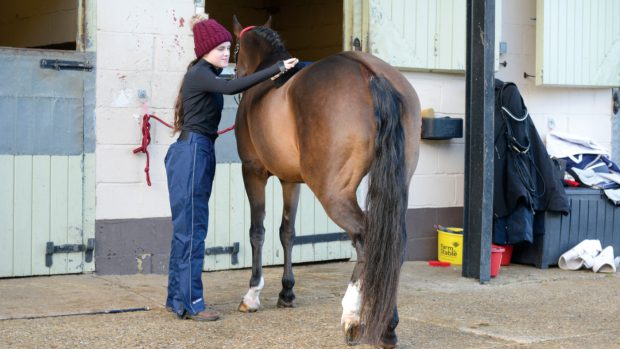Owners may be missing vital clues about their horses’ health and well-being, according to a new French study on behaviour.
French researchers explored how accurately humans assess well-being, using horses as the example. They found that 7times more horses exhibited stereotypies — such as crib-biting, weaving and door banging — than their grooms had indicated before the study.
Lead researcher Clémence Lesimple said people are “often not detecting welfare issues in their horses”. This may be through lack of knowledge or attention, not wanting to believe it, or becoming so accustomed to poor welfare that “they’ve lowered their threshold of what seems normal”.
The study investigated 373 horses of various breeds in 26 French riding schools. The primary groom of each horse completed a questionnaire initially, before the researchers observed the horse for 18hr.
Despite the grooms estimating that 5% of the horses had any issues, 37% showed at least one kind of stereotypic behaviour, and some as many as seven different kinds.
While the stereotypic behaviours investigated may not be too serious, does this research imply that more sinister health issues may be slipping under the radar?
World Horse Welfare deputy head of UK support Sam Chubbock said: “It’s easy for tiny changes to go unnoticed, meaning bigger changes can develop over time.
“We encourage all owners to keep notes on what is ‘normal’ for their horse so they can refer back to spot differences. It is also beneficial to see horses other than your own, as this can highlight other issues to which you have become acclimatised.”
H&H’s vet Karen Coumbe added: “It can be very hard for both grooms and owners to pick up many potential problems with horses under their care.
“How do you tell if they have a headache? Subtle signs are easily missed, especially if one is busy, when it is easy to look quickly, but not actually see.”
This article was first published in Horse & Hound on 5 June 2014.





